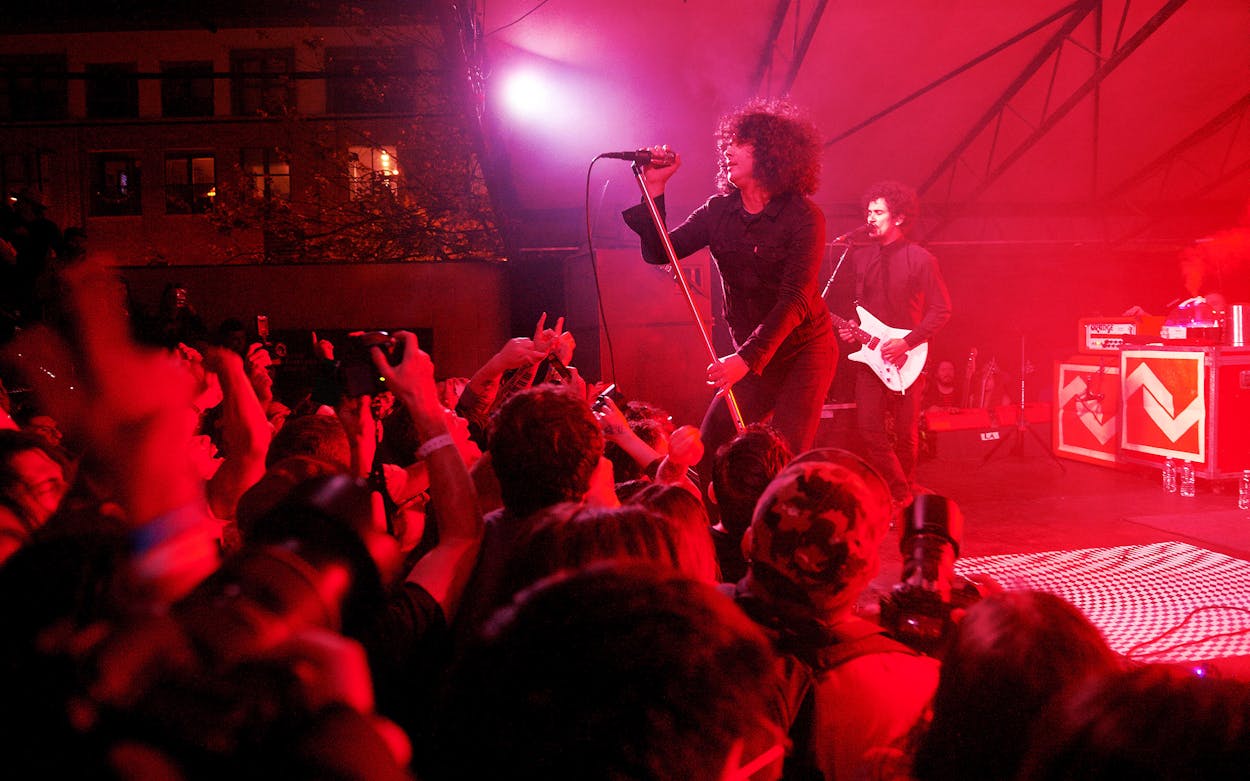Live music was one of the first casualties of the coronavirus pandemic, and nine months in—with government assistance dried up and no clear path to safely reopening in sight—things in the industry are only getting worse. Stages across Texas have been dark since March, and even with the hope provided by the first vaccinations this week, there’s no obvious timeline for when it will be safe for crowds to gather in clubs again. The pandemic has already resulted in the permanent closure of major venues like Austin’s Barracuda and Threadgill’s; on Monday, it also claimed the state’s largest independent concert promoter, Margin Walker Presents, which announced on Twitter today that it will be shutting down.
https://twitter.com/MarginWalkerTX/status/1338574125200248832
The move comes three months after widespread layoffs at Austin-based C3 Presents, a subsidiary of concert industry behemoth Live Nation, which promotes events like the Austin City Limits Festival and Lollapalooza. Both announcements reflect the difficulties faced by the live music industry, which been decimated by the pandemic—but the loss of Margin Walker also portends a particularly dire future for Texas music.
The stakes in the music industry right now are high, especially for those in the business who walk the margins—a group that includes independent promoters as well as artists, venues, record labels, booking agents, and others for whom music is a labor of love as well as commerce. While the sector as a whole remains mostly in stasis, there are troubling signs that the future might hold fewer opportunities for those players. When it’s safe to host live events, venues rely on promoters like Margin Walker to ensure that there’s a steady stream of talent that fans want to hear performed on their stages, while artists need those venues to have audiences to play for. A more consolidated music business—one in which a well-funded corporate promoter like Live Nation, which received a $500 million investment from Saudi Arabia’s Public Investment Fund in April, faces less competition—will be a tougher one for venues that prize their independence, and for artists trying to survive in an industry that’s come to rely on live events as a chief source of revenue.
The existence of midsized regional promoters like Margin Walker has been a critical part of a delicate live music ecosystem, in other words, and their absence will be felt throughout the industry. No one quite knows what that industry will end up looking like after the pandemic. Some venues will continue to hold on, while—in the continued absence of government assistance—many more are expected to close in the coming months. There will always be artists who want to perform, but whether there’ll still be opportunities for young musicians to earn a living off of their work, or if the next generation will need to have wealthy parents or day jobs that preclude touring, is a question whose answers have begun to look increasingly grim.
One thing we do know, though, is that Margin Walker—which worked with beloved venues such as Austin’s Mohawk, Cheer Up Charlies, and Barracuda, as well as Houston’s White Oak Music Hall, Dallas’s Club Dada and Bomb Factory, and San Antonio’s Paper Tiger—was a widely respected enterprise run by longtime industry professionals who are and were deeply passionate about the music they brought to fans. If the music industry is evolving to a place where that’s no longer enough for a promoter to survive, then the future of concertgoing is going to be a whole lot less fun, even after everyone in the crowd is vaccinated and ready to rock.
- More About:
- Music








